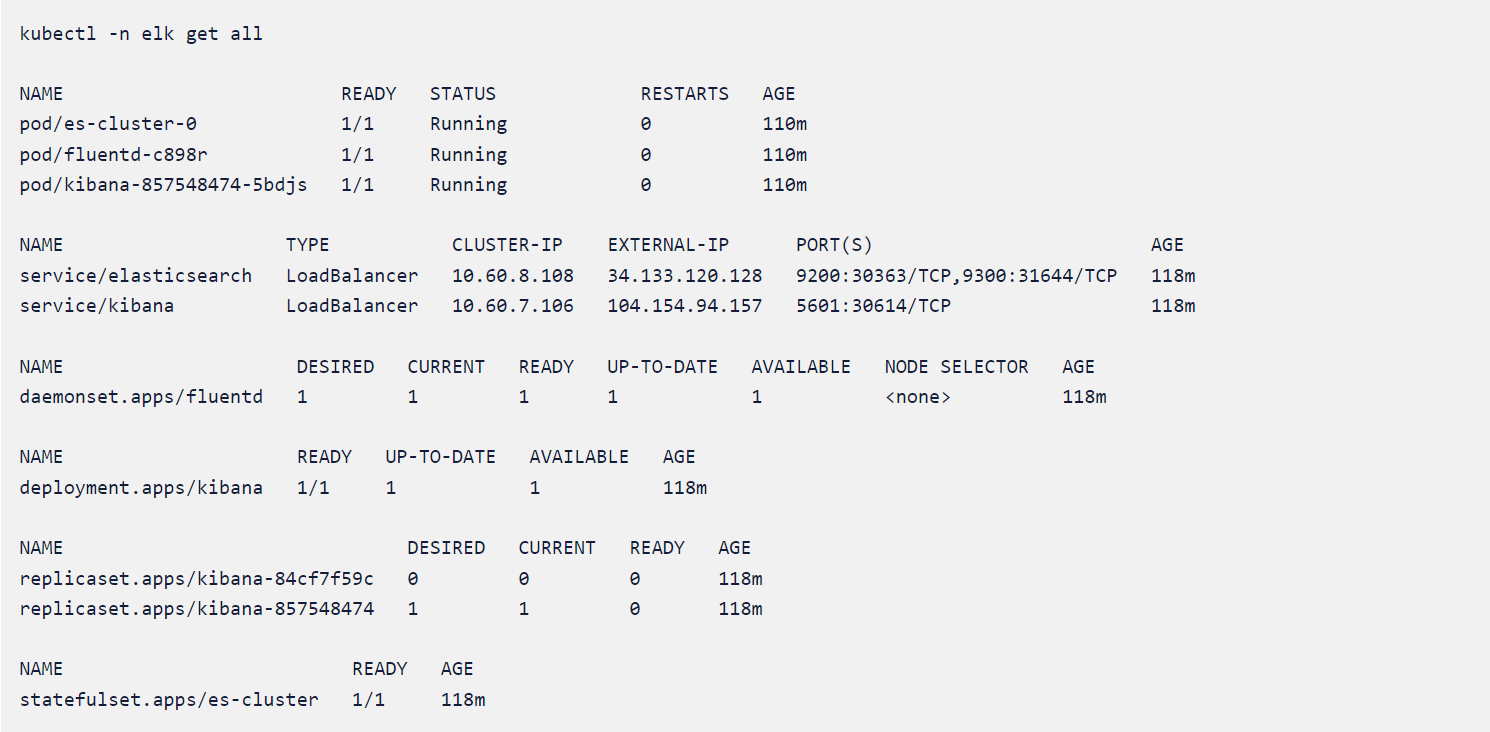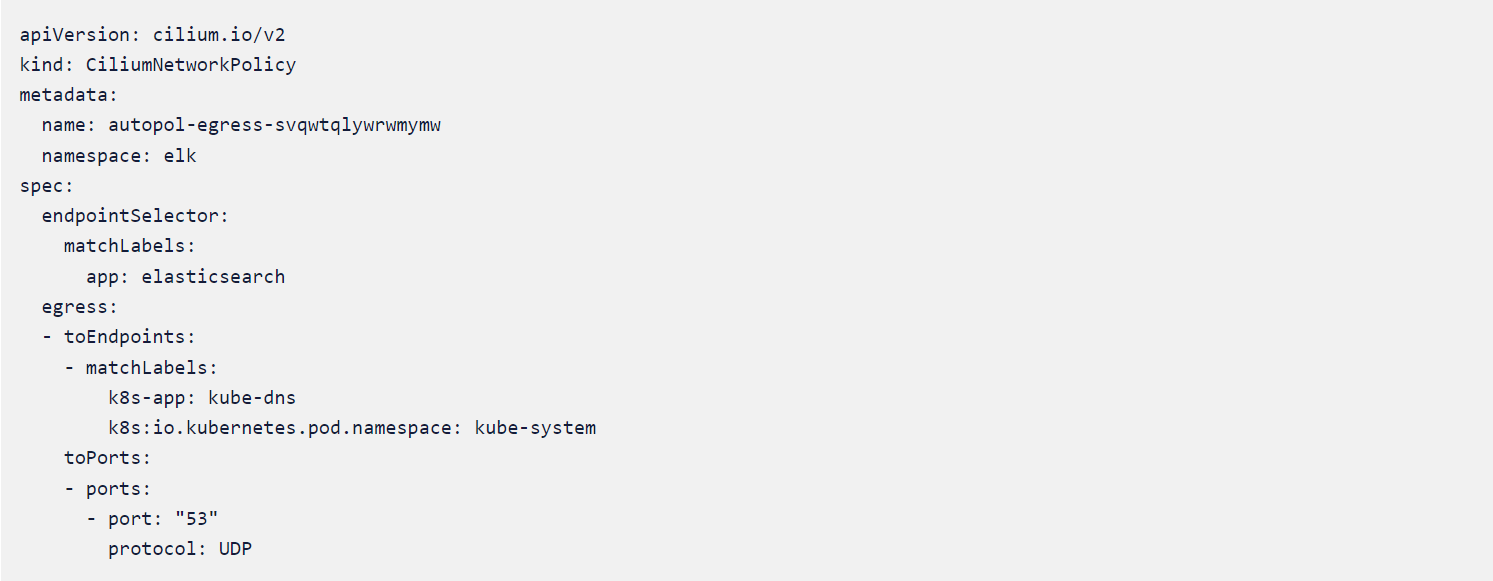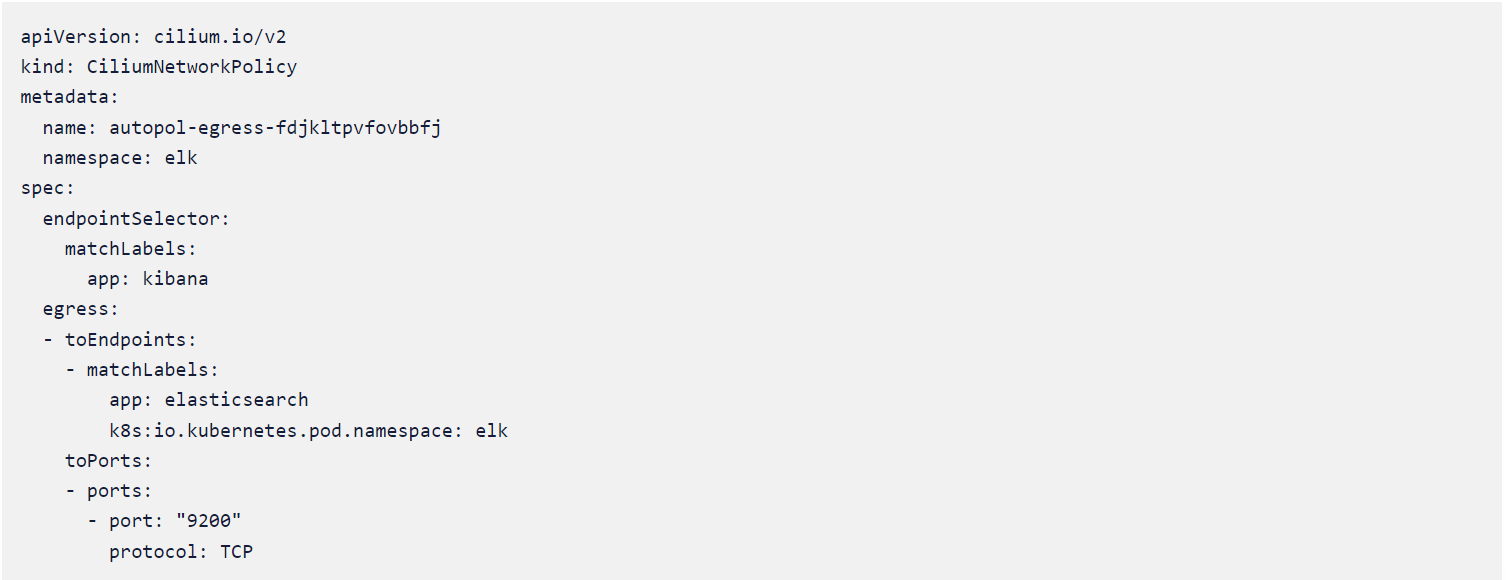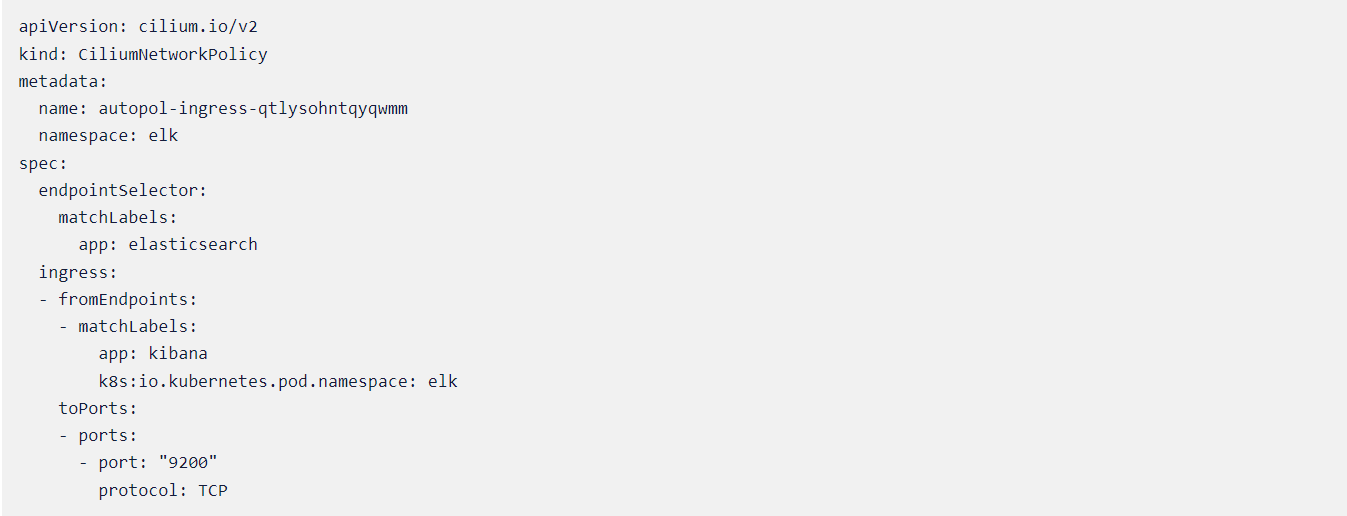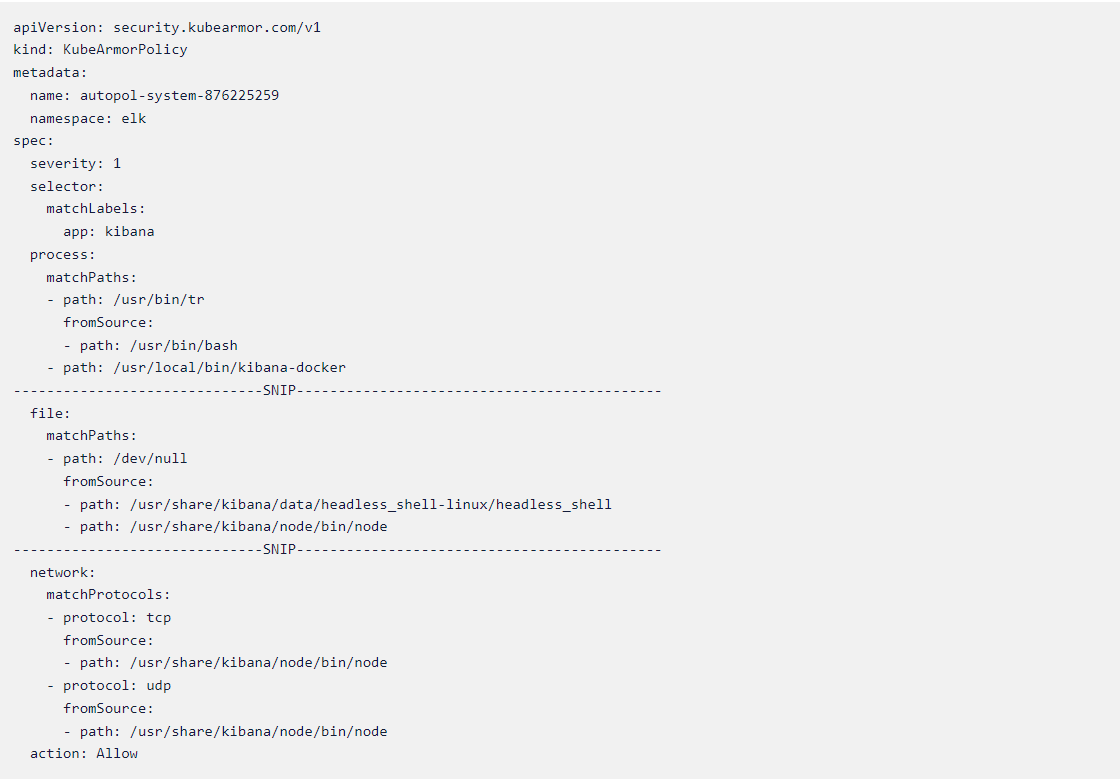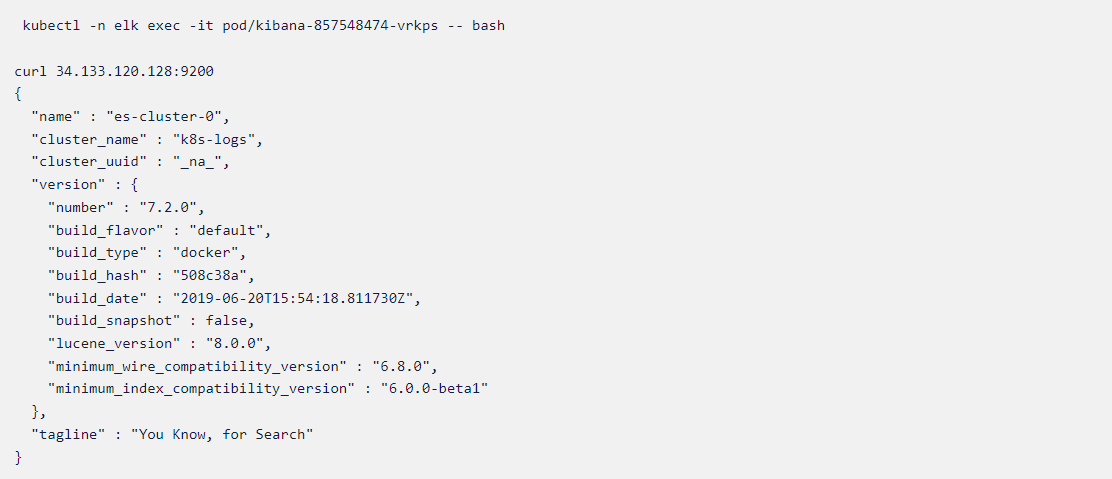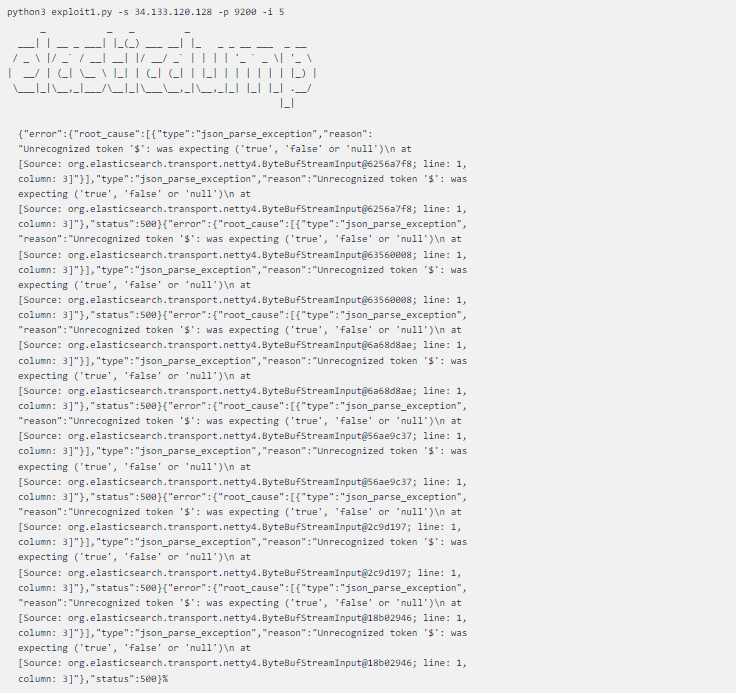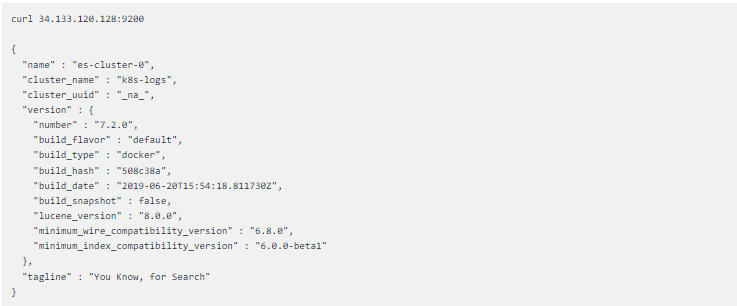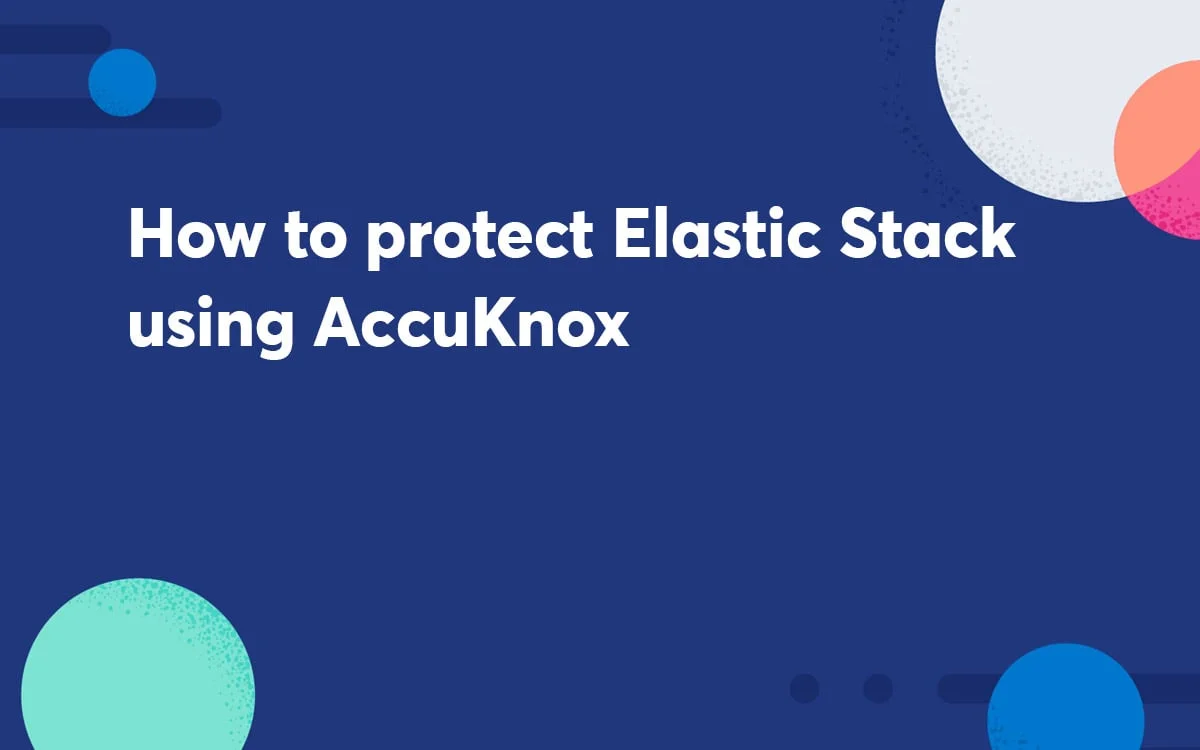
Protect Elastic Stack using AccuKnox
Introduction Elasticsearch is a sophisticated search and analytics engine that is used by majority of enterprises today. It allows users to quickly search and analyse a wide range of data. However, since Elasticsearch is easy to set up, individuals frequently overlook the need to strengthen its security in order to safeguard and assure authorized access […]
Reading Time: 7 minutes
Table of Contents
Introduction
Elasticsearch is a sophisticated search and analytics engine that is used by majority of enterprises today. It allows users to quickly search and analyse a wide range of data. However, since Elasticsearch is easy to set up, individuals frequently overlook the need to strengthen its security in order to safeguard and assure authorized access to data. In this article, we will be learning how to protect Elastic Stack at runtime using Accuknox’s opensource tooling. Accuknox hardens and protects workloads using Linux Security Modules (LSM) such as AppArmor and SELinux as well as eBPF for observability and networking enforcement.
Attacks and Countermeasures
In general, there can be 4 most common attacks that could happen to the Elastic Stack.
- Port Scanning
- Data theft
- Data deletion
- Logfile manipulation
The countermeasures to be executed are often simple and straightforward like minimising the exposure, creating secure access, setting up backups, log auditing and alerts. But what if we fail to ensure these countermeasures?AccuKnox opensource tools has got you covered in such unforeseen events, which might or might not happen to your Kubernetes or VM workloads.
Setting up an Elastic Stack to demonstrate runtime security
In this blog, we will demonstrate how to protect your Elastic Stack against such threats by implementing runtime security tools from AccuKnox. This will also analyse the application and generate policies that can be enforced by Linux Security Modules (LSMs) like AppArmor and SELinux.
Let us deploy Elastic Stack to a Kubernetes environment and make use of AccuKnox opensource tools to generate zero trust runtime security policies, apply them to the workload and make a comparison on the states before and after installing AccuKnox agents.
The scenario’s purpose is to demonstrate AccuKnox’s zero trust in an environment
Let’s create a Kubernetes cluster
gcloud container clusters create sample-cluster --zone us-central1-c
Once the cluster is up and running we will begin installing Elastic, Kibana, and Fluentd to the namespace elk
We will check the status of our elastic stack before continuing
From the output, we could see that all the deployments are running fine in elk namespace.
For the complete code, refer to the accuknox/samples GitHub page
Run-time protection using AccuKnox Open-source tools
Accuknox enables the ability to protect your workloads at run-time. Accuknox enables this by allowing you to configure policies (or auto-discover them) for application and network behavior using KubeArmor, Cilium, and Auto Policy Discovery tools
KubeArmor
KubeArmor, open-source software that enables you to protect your cloud workload at run-time.
The problem that KubeArmor solves is that it can prevent cloud workloads from executing malicious activity at runtime. Malicious activity can be any activity that the workload was not designed for or is not supposed to do.
Cilium
Cilium, an open-source project to provide eBPF-based networking, security, and observability for cloud-native environments such as Kubernetes clusters and other container orchestration platforms.
Auto Policy Discovery for your Elastic Stack
Even though writing KubeArmor and CIlium (System and Network) policies are not a big challenge AccuKnox opensource has it simplified one step further by introducing a new CLI tool for Auto Discovered Policies. The Auto-Discovery module helps users by identifying the flow and generating policies based on it.
Discovering policies has never been better with Auto Discovery. In two simple commands, you can set up and generate policies without having any trouble.
Let us now make use of AccuKnox’s Auto Discovered Policies to generate zero-trust runtime security policies to secure our workload.
The auto-discovered zero trust runtime security policies can be generated using two commands. We will have to deploy Cilium and KubeArmor to the cluster and use a MySQL pod to store the discovered policies from where they can be downloaded with a single command.
First, we will use the below command to install all prerequisites.
Once the command is run successfully it will install the following components to your cluster:
- KubeArmor protection engine
- Cilium CNI
- Auto policy discovery engine
- MySQL database to keep discovered policies
- Hubble Relay and KubeArmor Relay
Once this is down we can invoke the second script file which will download the auto-discovered policies from the MySQL database and store them locally. For this we will issue the below command:
This will create knoxautopol.hpi file under the target folder.
gcloud container clusters create sample-cluster --zone us-central1-cK8s cluster
Once the cluster is up and running we will begin installing Elastic, Kibana, and Fluentd to the namespace elk.

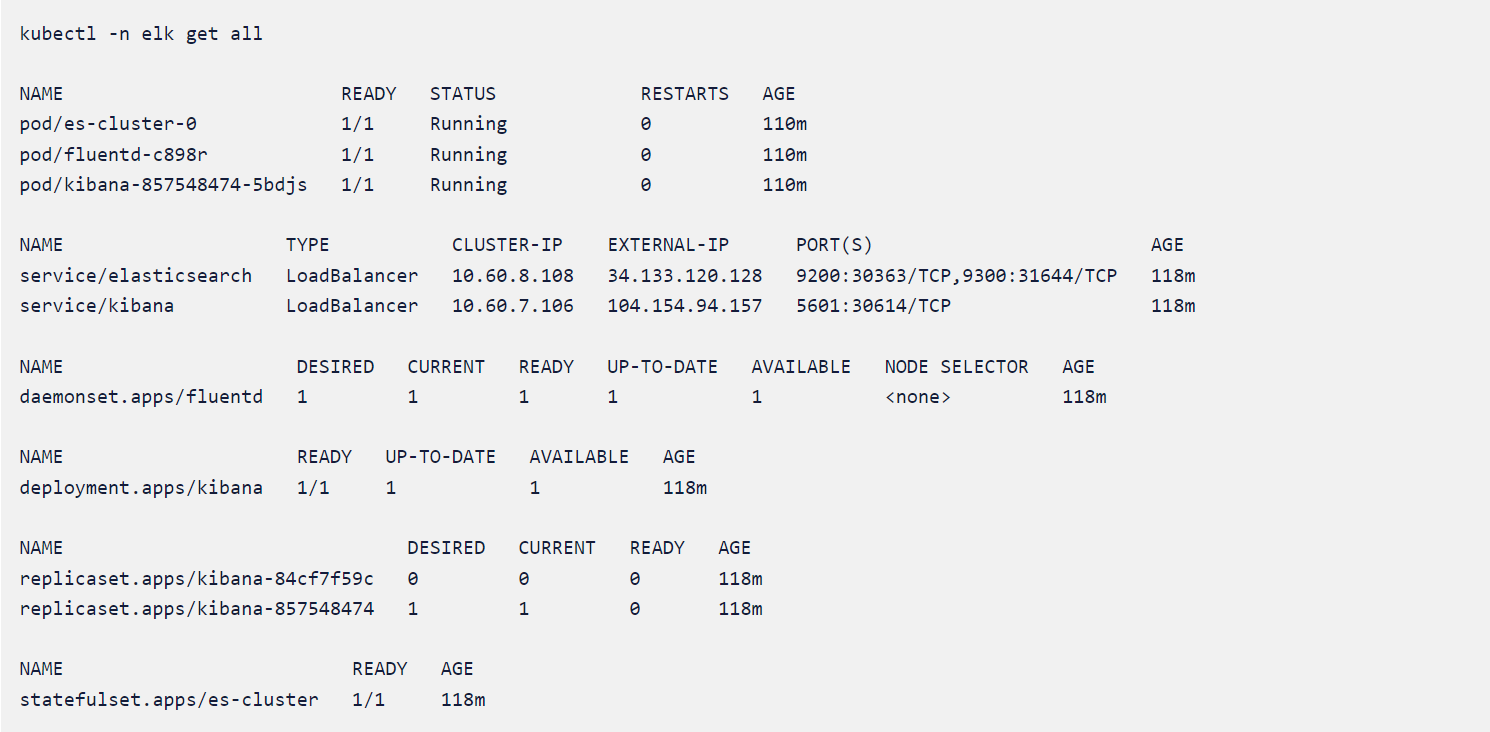
Run-time protection using AccuKnox Open-source tools
Accuknox enables the ability to protect your workloads at run-time. Accuknox enables this by allowing you to configure policies (or auto-discover them) for application and network behavior using KubeArmor, Cilium, and Auto Policy Discovery tools
KubeArmor
KubeArmor, open-source software that enables you to protect your cloud workload at run-time.
The problem that KubeArmor solves is that it can prevent cloud workloads from executing malicious activity at runtime. Malicious activity can be any activity that the workload was not designed for or is not supposed to do.
Cilium
Cilium, an open-source project to provide eBPF-based networking, security, and observability for cloud-native environments such as Kubernetes clusters and other container orchestration platforms.
Auto Policy Discovery for your Elastic Stack
Even though writing KubeArmor and CIlium (System and Network) policies are not a big challenge AccuKnox opensource has it simplified one step further by introducing a new CLI tool for Auto Discovered Policies. The Auto-Discovery module helps users by identifying the flow and generating policies based on it.
Discovering policies has never been better with Auto Discovery. In two simple commands, you can set up and generate policies without having any trouble.
Let us now make use of AccuKnox’s Auto Discovered Policies to generate zero-trust runtime security policies to secure our workload.
The auto-discovered zero trust runtime security policies can be generated using two commands. We will have to deploy Cilium and KubeArmor to the cluster and use a MySQL pod to store the discovered policies from where they can be downloaded with a single command.
First, we will use the below command to install all prerequisites.
curl -s https://raw.githubusercontent.com/accuknox/tools/main/install.sh | bash
Once the command is run successfully it will install the following components to your cluster:
- KubeArmor protection engine
- Cilium CNI
- Auto policy discovery engine
- MySQL database to keep discovered policies
- Hubble Relay and KubeArmor Relay
Once this is down we can invoke the second script file which will download the auto-discovered policies from the MySQL database and store them locally. For this we will issue the below command:
curl -s https://raw.githubusercontent.com/accuknox/tools/main/get_discovered_yamls.sh | bash
You should be able to see the following output.
In mere seconds after installing executing auto policy discovery tool, it generated 17 Cilium policies and 4 curated KubeArmor policies.
Let us take a look at some of the auto-discovered policies
Cilium Policy #1
Cilium Policy #2
Cilium Policy #3
KubeArmor Policy #1
We also have predefined policies in the policy-template GitHub repository which can be utilized to achieve the same level of runtime security without having to generate autodiscovery policies. You can find them in
policy templates/elastic at main · kubearmor/policy-templates. The only downside is that you need to know the namespace and labels for your Elastic and Kibana workloads.
The Policies in action
It is time to verify whether we were able to achieve zero trust by using the auto-discovered policies generated by AccuKnox opensource tools. To test this we will scan the application with some popular scanners.
Before that let us verify that the policies are applied correctly to the cluster
Initiating the Attack scenario
Let us initiate a recent attack that happened in Elastic search, the Anonymous Database Dump dubbed as CVE-2021-22146. With all the policies applied to the cluster, we will initiate the attack. You can download the code for the attack from our samples repository
samples/CVE-2021-22146.py at main · accuknox/samples
All done! let’s run the exploit and see what we get.
The attack is not happening since the policies are denying external connection to the elastic pod. To make sure that we still have a connection between our kibana and elastic search pods we’ll execute into the kibana pod and do a curl request to the elastic search
If we try to curl to Elastic pod IP from anywhere else we’ll get a connection timeout error
Now its time to see how the Elastic and Kibana deployments behave if the runtime security policies are removed
Time to attack and see the difference.
The attack happened and we were able to dump database values anonymously. We’ll do one more test and make sure that anyone can access the Elastic and Kibana workloads now.
We could see that the attack happened after we deleted the policies which were auto-discovered in a safe environment. This means applying the auto-discovered policies ensured that the workload had been protected at runtime.
Accuknox’s policy templates repository
Accuknox’s policy templates is an open-source repo that also contains a wide range of attack prevention techniques including MITRE, as well as hardening techniques for your workloads. Please visit
GitHub – kubearmor/policy-templates: Community curated list of System and Network policy templates for the KubeArmor and Cilium to download and apply policy templates.
Conclusion
Despite the difficulty of detecting and mitigating an Elasticsearch attack, the AccuKnox opensource tools can secure you workloads in a simple click within minutes.
Now you can protect your workloads in minutes using AccuKnox, it is available to protect your Kubernetes and other cloud workloads using Kernel Native Primitives such as AppArmor, SELinux, and eBPF.
Reach out to us if you are seeking additional guidance in planning your cloud security program.
Must read articles
- Zero Trust (ZT) – The Future of Cloud Security
- Zero Trust (ZT) Architecture, Framework and Model
- Cloud Security Governance, Risk and Compliance (GRC)
- How to Pick the Right CNAPP (Cloud Native Application Protection Platform) Vendor
- What is Driving the Need for CSPM (Cloud Security Posture Management)
- Agent vs Agentless Multi Cloud Security
Zero Day Attacks cost $3.9M on average

4+
Marketplace Listings
7+
Regions
33+
Compliance Coverage
37+
Integrations Support

Stop attacks before they happen!
According to the latest IBM cloud attack report - Each cloud attack on an average costs $3.92M
Total Exposed Attacks in 2024 Costed


